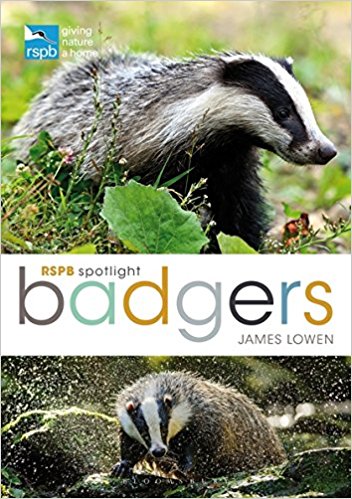Chemical Deterrents
| RSPB Spotlight on Badgers book |
 |
James
Lowen explores the lives of badgers and their communal
living, feeding habits and threats to their conservation. Click
here to buy:
Paperback edition
Kindle edition
|
Badgers digging in lawns is a largely seasonal phenomenon, most
pronounced in early spring and late autumn. Since the problem is
confined to certain limited periods each year, many gardeners find
it easier to tolerate the nuisance than try to exclude the badgers
from their garden. Minimising damage to gardens is difficult, as badgers are both
powerful and determined creatures.
With the Control of Pesticides
Regulations (1986) it is illegal to use unapproved chemicals (such
as Renardine or RenCoco), not
specified for a particular use, so care must be taken in choosing
a product.
Old-fashioned methods like "stinking-out" (with diesel oil,
creosote, etc) are illegal, as those substances damage the sett and may
cause permanent harm to the badgers (a protected species).Recent court cases have shown the willingness of the
courts to send people to jail who use illegal deterrents (such as diesel
oil or creosote or Jeyes Fluid). See the news story from the 11th May 2003
for more details. Given the ban on Renardine, it will remain to be seen
whether people will be prosecuted for using Renardine illegally after the
24th March 2005.
As at 2008, there should be no stocks of Renardine
anywhere in the EEC. It may not be sold, and all existing stocks must be
been used up or destroyed. If any-one has any Renardine, this should be
disposed of by means of an approved waste disposal company. In the real
world, some Renardine still exists - sometimes being used (illegally) to
spray on to animal snares and badger traps used in badger culling areas.
Some people (for example, the Cornwall Wildlife Trust - http://www.cornwallwildlifetrust.org.uk/nature/mammals/badger.htm)
believe that using bird or animals repellents which contain aluminium
ammonium sulphate may be effective against incoming wildlife. In our view they
are likely to be less than 100% effective,
especially as they are often designed to be taste-repellents to
deter animals or birds from eating crops which have been planted for later
consumption by humans. There is little information available to
indicate how effective these are against badgers. Importantly,
as they have not been specifically licensed to deter badgers, such
use against badgers may be illegal anyway.
| Chemical Deterrents
|
| As of the 24th March 2005, THERE
IS NO CHEMICAL LEGALLY APPROVED TO DETER BADGERS! |
| Don't blame us - blame the politicians in Europe! |
|
 |
| Old Wife's Tales! |
| Badgers do not like the smell of
human male urine. Use a watering can (!) to soak an old carpet
strip and place this around valuable plants! |
| Many animals do not appear
to like the smell of Ralgex. Spray some old socks with Ralgex
and place these around valuable plants as this may protect the plants
from badgers, cats and dogs. |
|
|

| Legal Notice regarding the banning of
Renardine: |
| Renardine was the only legally permitted chemical deterrent which was
effective against badgers.
As from the 24th March 2005, Renardine has been banned.
Importantly, ALL the approvals for Renardine have now expired. This
means that: |
|
* Renardine can no longer be advertised for sale. |
|
* Renardine can not be bought from any shop, wholesaler, mail order,
agricultural supplies merchants, internet or by private sale. |
|
* Renardine may no longer be supplied, sold, given away or swapped. |
|
* Renardine may no longer by used. |
|
* Renardine may no longer be stored (so any stocks you have must be
disposed of). |
|
RenCoco
( Renardine-impregnated cocoa shells) has also been banned. |
|
For more information see the
PSD's web site at http://www.pesticides.gov.uk/approvals.asp?id=1567 |
|
